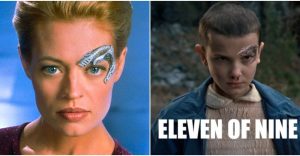Is Black Widow Suitable For Children: How Violent Is It?

How violent is the MCU’s new movie, Black Widow, and how appropriate is it for children to watch? That’s the question the parents of Marvel-loving younger fans will want to see answered as the question of whether to buy tickets or rent on Disney+ is broached. And despite Cate Shortland’s cinematic Phase 4 opener being a Marvel release, it is genuinely bloody in parts.
After Scarlett Johansson’s Natasha Romanoff was killed in Avengers: Endgame, Black Widow sees the MCU finally offering her the chance of her own story, answering long-established mysteries about her past. And while she may not have a future in the MCU – bar some time-travel loophole or a multiverse twist, of course – the film does set up the possibility of a sequel and further MCU appearances by other characters it introduces.
Somewhat inevitably, given the way Natasha always spoke about her past – and what was teased about the Red Room in Avengers: Age of Ultron – Black Widow‘s story is one of trauma. Even without the MCU’s belated apparent epiphany on the marketability of female superheroes, it’s difficult to see how this specific film would have been made 10 or even 5 years ago. Because alongside the violent scenes – including a fair bit of blood – Black Widow tackles the difficult, important subject of the abuse of young women by men in power. It’s a bold, challenging area for the MCU to tackle, and it’s one that shifts the tone of the film at times into more complex material than might be expected of a family film, but it’s crucial all the same. The youngest children may be best shielded from the violence, but the story deserves to be seen and discussed by older children: in other words, Marvel’s usual PG-13 rating fits.

There are other considerations for Black Widow, of course, as the MPAA’s rating has specific details of note. It was rated PG-13 specifically for “intense sequences of violence/action, some language, and thematic material,” and that “intense” qualifier sets it apart. MCU movies tend to get the same PG-13 rating, but with “sequences of sci-fi violence and action” as the qualifier in most cases. Black Widow stands apart because it is arguably more grounded – even if the narrative swerves into sci-fi territory – and there’s a brutal note to the violence that feels different. It’s more personal, more intense, and is so impressively choreographed that it feels more realistic than watching the Avengers take down Thanos’ Outriders or the Chitauri.
The thematic warning fits the content on abuse because otherwise, Black Widow is a spy thriller that leans into James Bond tropes – and a host of other cinematic references worn openly on its sleeve. It marries intense sequences of violence with surprising notes of levity; darkness and light, almost as an homage to Natasha herself.
Next: Black Widow’s Complete MCU Timeline Explained
- Black Widow (2021)Release date: Jul 09, 2021
- Shang-Chi and the Legend of the Ten Rings (2021)Release date: Sep 03, 2021
- Eternals (2021)Release date: Nov 05, 2021
- Doctor Strange in the Multiverse of Madness (2022)Release date: May 06, 2022
- Thor: Love and Thunder (2022)Release date: Jul 08, 2022
- Black Panther: Wakanda Forever/Black Panther 2 (2022)Release date: Nov 11, 2022
- The Marvels/Captain Marvel 2 (2023)Release date: Feb 17, 2023
- Ant-Man and the Wasp: Quantumania (2023)Release date: Jul 28, 2023
- Guardians of the Galaxy Vol. 3 (2023)Release date: May 05, 2023
About The Author


















